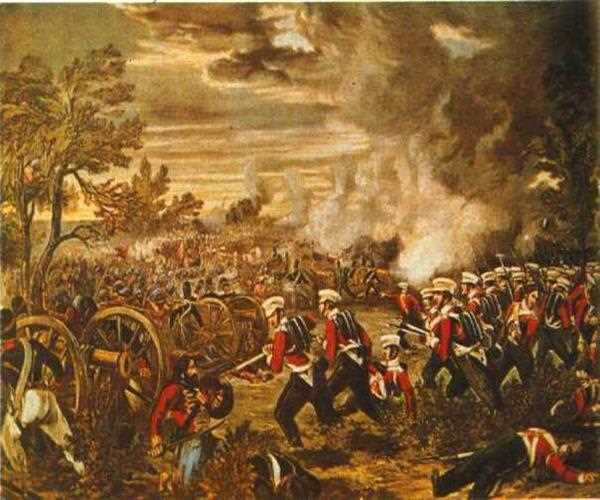The Second Anglo-Sikh War was a military clash between the Sikh Empire and the British East India Company that occurred in 1848 and 1849. It brought about the fall of the Sikh Empire, and the extension of the Punjab and what consequently turned into the North-West Frontier Province, by the East India Company.

On April 19, 1848 Vans Agnew of the common administration and Lieutenant Anderson of the Bombay European regiment, having been sent to assume responsibility of Multan from Diwan Mulraj, were killed there, and inside a brief span the Sikh troops and sardars participated in open insubordination.
After the triumph at Gujarat, Lord Dalhousie added the Punjab for the East India Company in 1849. For his administrations the Earl of Dalhousie got the thanks of the British parliament and a stage in the peerage, as marquess.
The Sikh Wars gave the two sides a common regard for each other's battling ability. The Sikhs would battle dependably for the British in the Indian Mutiny and in numerous different crusades and wars up until Indian Independence in 1947.
Foundation of the War
The Sikh kingdom of the Punjab was solidified and extended by Maharaja Ranjit Singh amid the early long periods of the nineteenth century. Amid a similar period, the British East India Company's regions had been extended until the point when they were adjoining the Punjab. Ranjit Singh kept up an uneasy organization together with the East India Company, while expanding the military quality of the Sikh Khalsa Army, which likewise considered itself to be the exemplification of the state and religion, to discourage British hostility against his state and to extend A sikh area toward the north and north west, catching domain from Afghanistan and Kashmir.
At the point when Ranjit Singh kicked the bucket in 1839, the Sikh Empire started to fall into scatter. There was a progression of fleeting rulers at the focal Durbar (court), and expanding pressure between the Army and the Durbar. The East India Company started to develop its military quality on the outskirts of the Punjab. In the long run, the expanding strain spurred the Sikh Army to attack British domain, under powerless and conceivably tricky leaders. The hard-battled First Anglo-Sikh War finished in overcome for the Sikh Army.